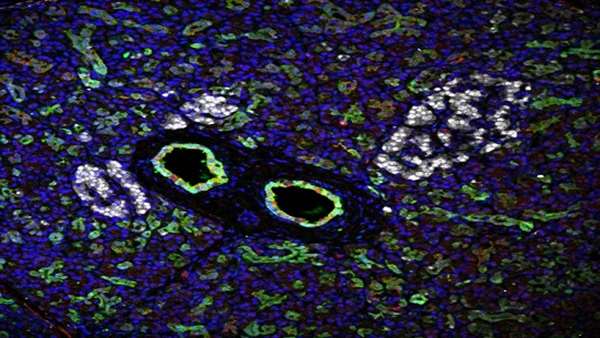Researchers Identify Stem Cells That Can Be Programmed to Produce Insulin
Researchers from the Diabetes Research Institute at the University of Miami have discovered that stem cells found in the human pancreas can differentiate into insulin-producing cells.
Researchers from the Diabetes Research Institute at the University of Miami have discovered that stem cells found in the human pancreas can differentiate into insulin-producing cells.
The researchers isolated and cultured the progenitor cells from the pancreases of human donors. To induce differentiation, the cells were treated with bone morphogenetic protein 7 (BMP-7). BMP-7 plays a multitude of roles in embryonic development, among other processes, and is particularly important in determining cell fate. BMP-7 is commercially available and has been used for bone remodeling in the clinical setting.
Interestingly, these progenitor cells are not found in the islets of Langerhans, like the pancreatic alpha and beta cells. Instead, they are localized to the pancreatic ducts and the associated glands. Following treatment, the differentiated beta-like cells can respond to glucose stimulation by secreting insulin.
This is an exciting discovery as these cells may offer a novel strategy to generate insulin-producing cells for the treatment of type 1 and type 2 diabetes. These progenitor cells can potentially be programmed to behave like beta-like, insulin-secreting cells.
For people living with type 1 diabetes, insulin injections or infusions constitute the only treatment options, barring a pancreas transplant. In addition to a lack of donor organs, pancreatic transplants are hindered by the need for immunosuppressant drugs, which have many undesirable side effects.
Ongoing research has been focused on cell transplantation strategies. Similarly, the main challenge with transplanting cells remains the one of immune-mediated rejection.
In this regard, tapping into preexisting cells within the patient’s own pancreas is an exciting avenue for exploration.
Although promising, this research is highly preliminary. “We acknowledge that the beta-like cells generated in our study are not as competent as native beta-cells,” the researchers state. This may be due to the differences between the physiological and culture conditions. It is impossible to perfectly replicate the biological environment in the test tube, after all. Nevertheless, the research is a key step en route to further testing and validation of the putative treatment approach. “Our study was aimed at establishing proof of principle,” the paper explains.
The next logical step will be to detect these progenitor cells in the pancreases of people with diabetes. If these cells are present, further research will be conducted to determine if BMP-7-mediated activation of the cells to transform them into insulin-secreting cells is feasible in a physiological setting.
Of course, even if pancreatic stem cells are reprogrammed into insulin-secreting cells, autoimmune-mediated destruction will likely remain an obstacle. Other efforts aimed at preventing the recognition and destruction of the beta-like cells will be important in making the potential therapeutic strategy an efficacious option in the future.





ارسال به دوستان